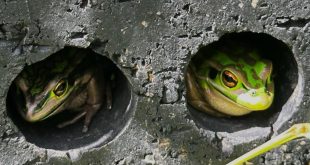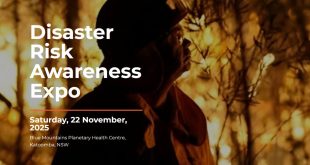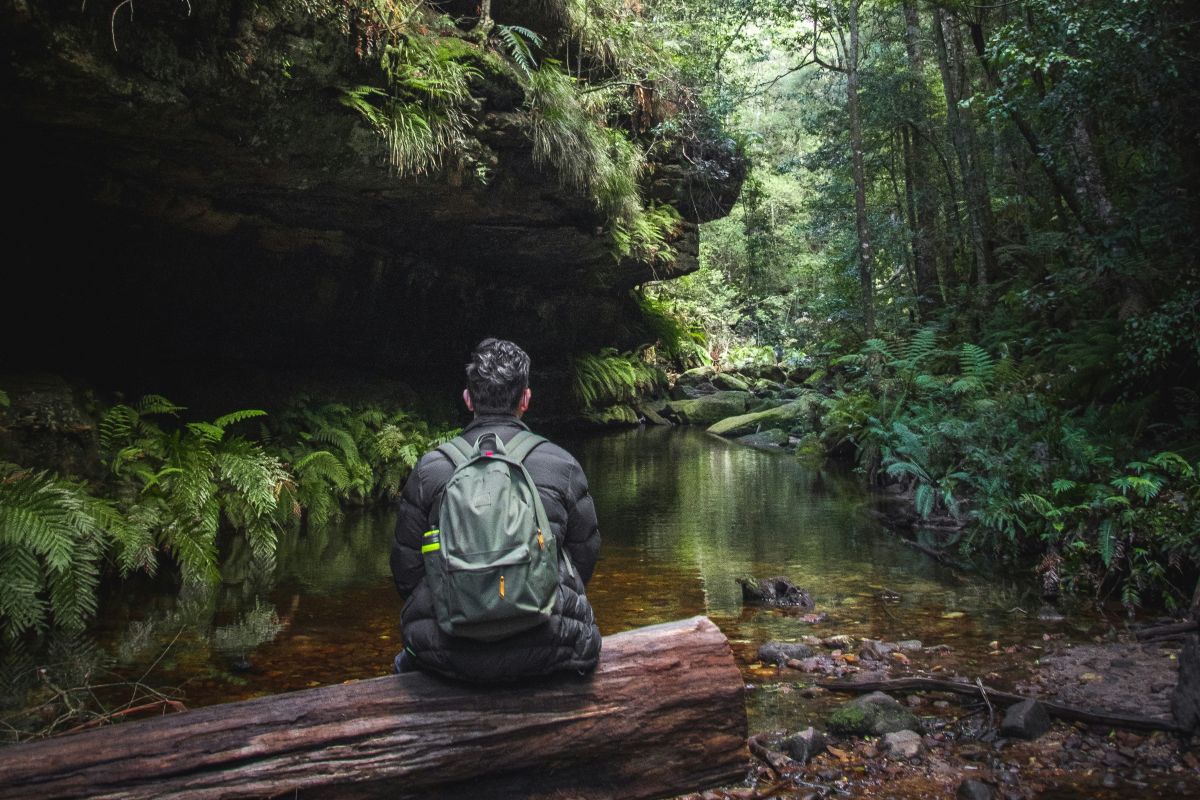
Connecting with nature on the Grand Canyon walk in the Blue Mountains. Photo credit: Laura Barry
The concept of planetary health is rapidly gaining attention globally, as the world increasingly confronts the interconnected challenges of environmental degradation, climate change, and public health crises. But what does the term ‘planetary health’ really mean, why does it matter and what prompted Blue Mountains City Council’s focus on planetary health?
Key Points:
- Planetary health is a rapidly growing interdisciplinary field and movement, recognising the interconnectedness of human health and the Earth’s natural systems.
- Australia faces specific vulnerabilities to climate change, biodiversity loss, pollution and food security to name just a few.
- Blue Mountains City Council forged an early path in the movement with planetary health central to its 25-year old Sustainability Model and Map for Action. This has culminated in the development of a Council-run Planetary Health Centre, focused on systemic change.
Blue Mountains City Council’s focus on Planetary Health
In 2025 Blue Mountains City Council is celebrating its 25-year commitment to becoming a more Sustainable Blue Mountains with Planetary Health at its core.
Dr Rosemary Dillon, Council’s CEO, recalls the origin of that commitment:
“It all goes back to the year 2000 when we commenced an amazing journey with our community that resulted in the establishment of the Blue Mountains Sustainability Model and our Map for Action for a More Sustainable Blue Mountains: socially, economically, environmentally. And our community, they came up with the focus on sustainability.“
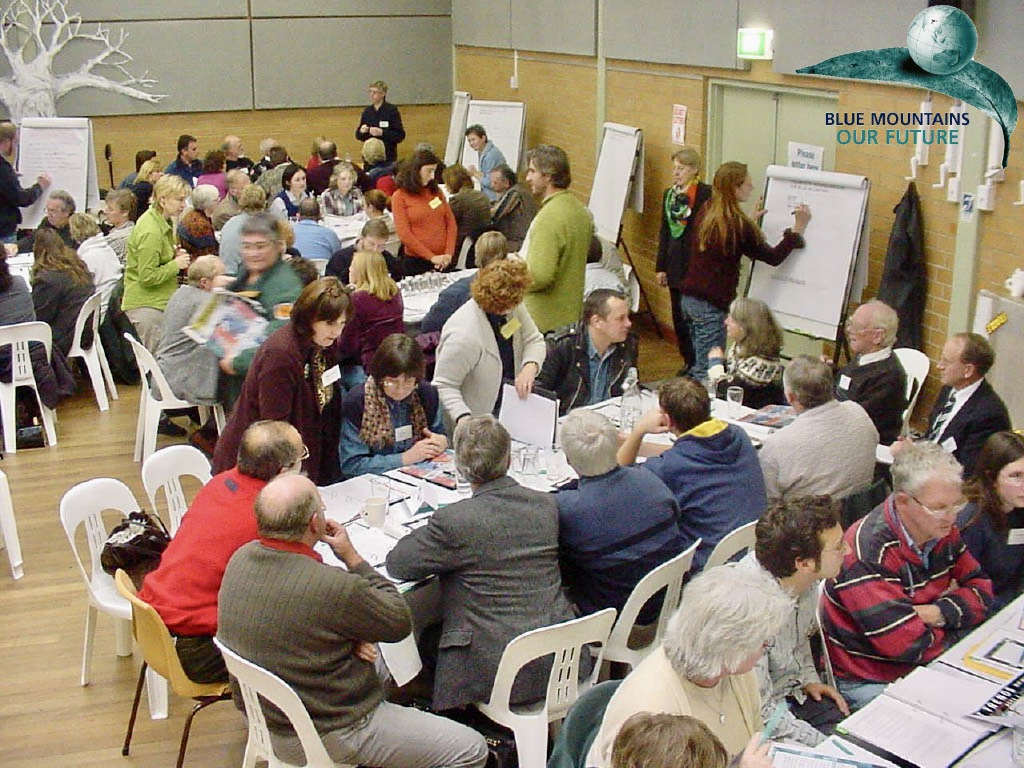
Council and community working together in 2000 to develop the vision for a more sustainable Blue Mountains with Planetary Health at its core.
“At the heart of the Blue Mountains Sustainability Model is a picture of planet earth. It’s there because when we did all this work with community, and when we reviewed what was happening across the whole world, we realised the connection between the health of people in our communities and having a healthy planet.
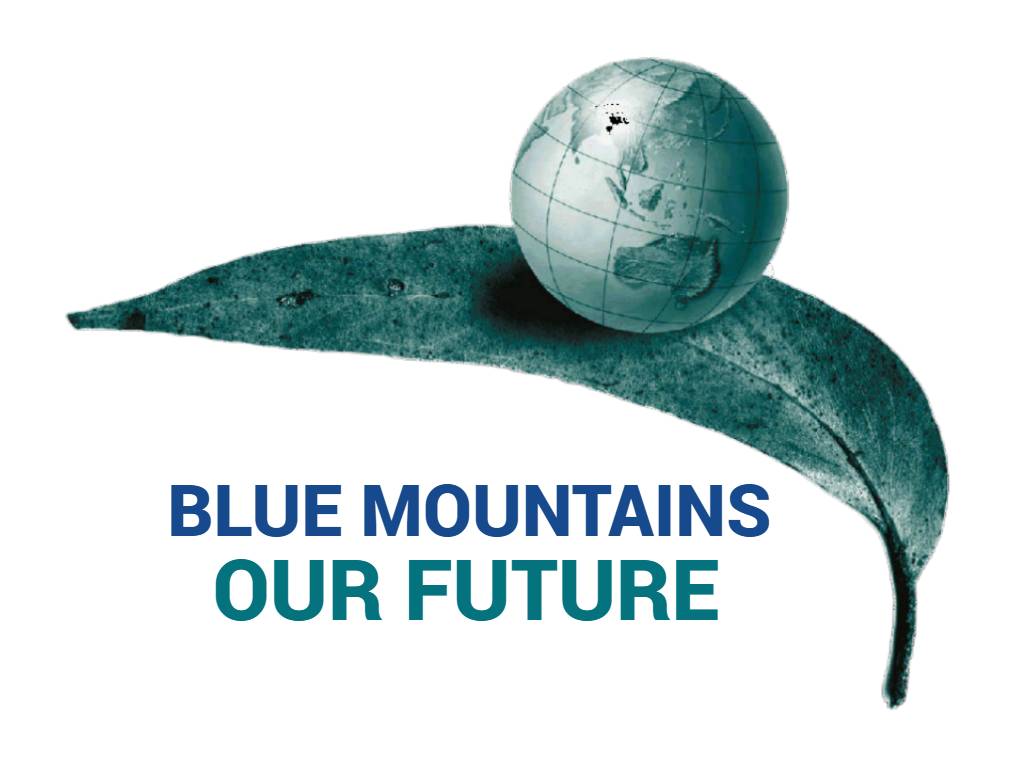
“The role of local government is absolutely key. Local governments are the level of government closest to the people and they manage local government areas, socially, economically and environmentally in an integrated way, hopefully.
“And, so what we’re trying to do is work with our communities to create systems in the local government areas that can be scaled and can grow exponentially. In some ways you could say to create a bottom-up revolution, because the world’s made up of local government areas.
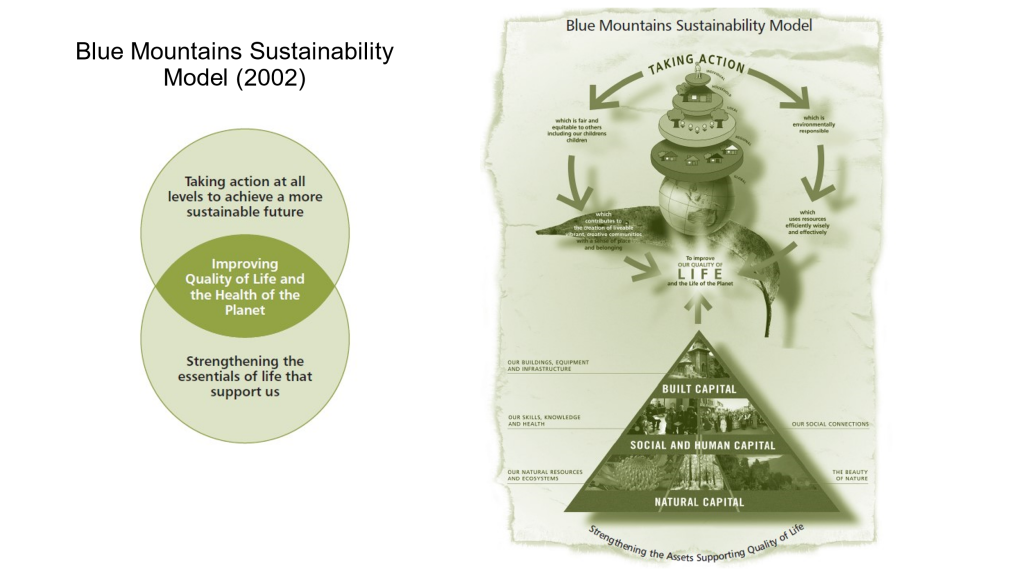
We know we’ve got to do things differently and that includes also creating a compelling vision for a future that will give hope to our young people. Where we can be a beacon of light, a way forward, that perhaps is different to the current paradigm.”
We are Nature. A video about Blue Mountain City Council’s Planetary Health Initiative
So what is Planetary Health?
At its core, planetary health seeks to address the link between the wellbeing of human societies and the health of the natural systems that sustain life on Earth: recognising that they are an integrated whole. It acknowledges the interdependence of the environment and human health and advocates for a holistic approach to resolving global challenges.
Planetary health is an interdisciplinary field that examines how human-caused disruptions of Earth’s natural systems affect human health. It brings together environmental science, medicine, public health, public policy and social sciences alongside many other areas.
Unlike traditional environmental health, which focuses on how specific issues affect individuals, planetary health considers system-wide environmental changes and their broader health implications across populations. It recognises that when we damage our planet’s support systems through activities like deforestation, pollution of air, land and water, and the burning of fossil fuels, we ultimately harm ourselves.
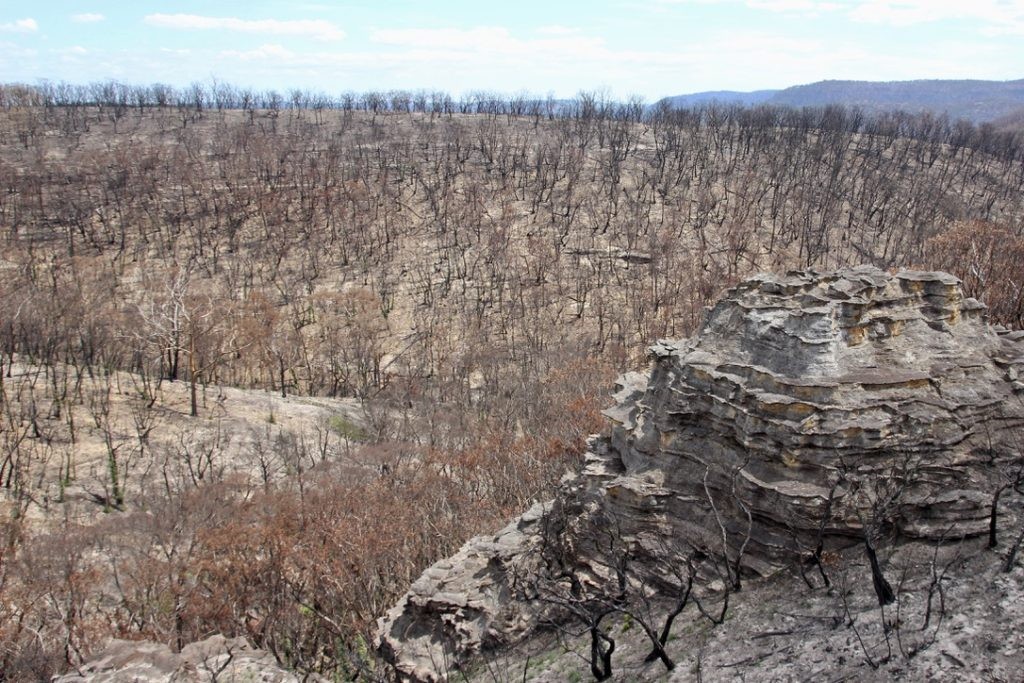
Severely burnt bushland near Bell in March 2020, two months after the Black Summer bushfires (Photo credit: Peter Smith).
Why is Planetary Health Important?
Our health is not isolated from the health of the planet. We rely on healthy ecosystems for clean air, fresh water, nutritious food, and a stable climate. Some of the key areas that planetary health looks at and seeks to positively impact include:
- Climate Change and Health: Australia is experiencing the direct health impacts of climate change. Heatwaves are becoming more frequent and severe, leading to increased heatstroke and cardiovascular problems. Bushfire smoke exacerbates respiratory conditions, while floods and droughts disrupt food security and mental health.
- Biodiversity Loss and Zoonotic Diseases: Australia’s unique biodiversity, including its iconic wildlife, is under threat, impacting ecosystem resilience and potentially increasing the risk of future pandemics. The destruction of natural habitats increases the risk of zoonotic diseases, such as COVID-19, jumping from animals to humans.
- Pollution and Non-Communicable Diseases: Air, water, and soil pollution contribute to a range of non-communicable diseases, including asthma, cancer, and cardiovascular disease. Industrial activities, mining, and intensive agriculture are major sources of pollution in Australia.
- Food Security and Nutrition: Climate change and land degradation are impacting agricultural productivity, threatening food security and nutrition. Pollinators are in decline, impacting food production and ecosystems that depend on them. Extreme weather events can destroy crops and livestock, while changes in rainfall patterns can lead to water shortages and crop failures.
- Mental Health and Wellbeing: The experience of environmental disasters, such as bushfires, droughts, cyclones and floods, can have a profound impact on mental health. The loss of connection to nature, particularly for Indigenous communities with deep cultural ties to the land, can also contribute to mental distress.
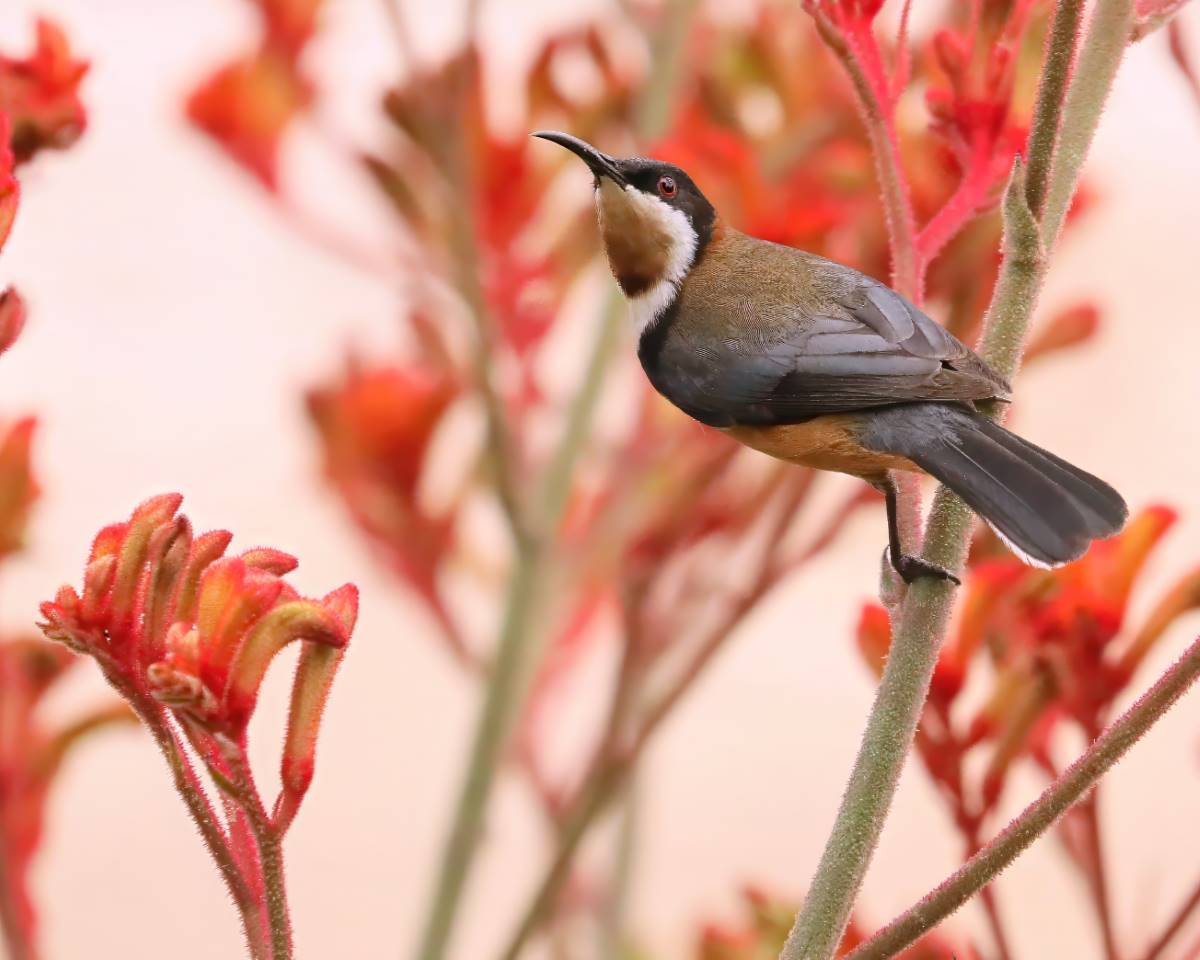
Eastern Spinebill. Photo Credit: Merryl Watkins
Key Components of Planetary Health
At the heart of the planetary health framework are several key components:
- Sustainability: Adopting practices that do not deplete natural resources and ensure the long-term health of the Earth’s ecosystems.
- Interdisciplinary Approach: Understanding that planetary health is not solely the domain of environmental scientists, but requires the input of health professionals, policymakers, economists, social scientists and more to tackle these complex, interconnected problems. Local communities and individuals are vital contributors at the local level.
- Equity: Ensuring that the benefits of a healthy planet and sustainable practices are shared equitably across populations, particularly vulnerable communities who are disproportionately affected by environmental degradation.
- Prevention and Resilience: Focusing on prevention through sustainable development and building resilience in communities to withstand environmental shocks.
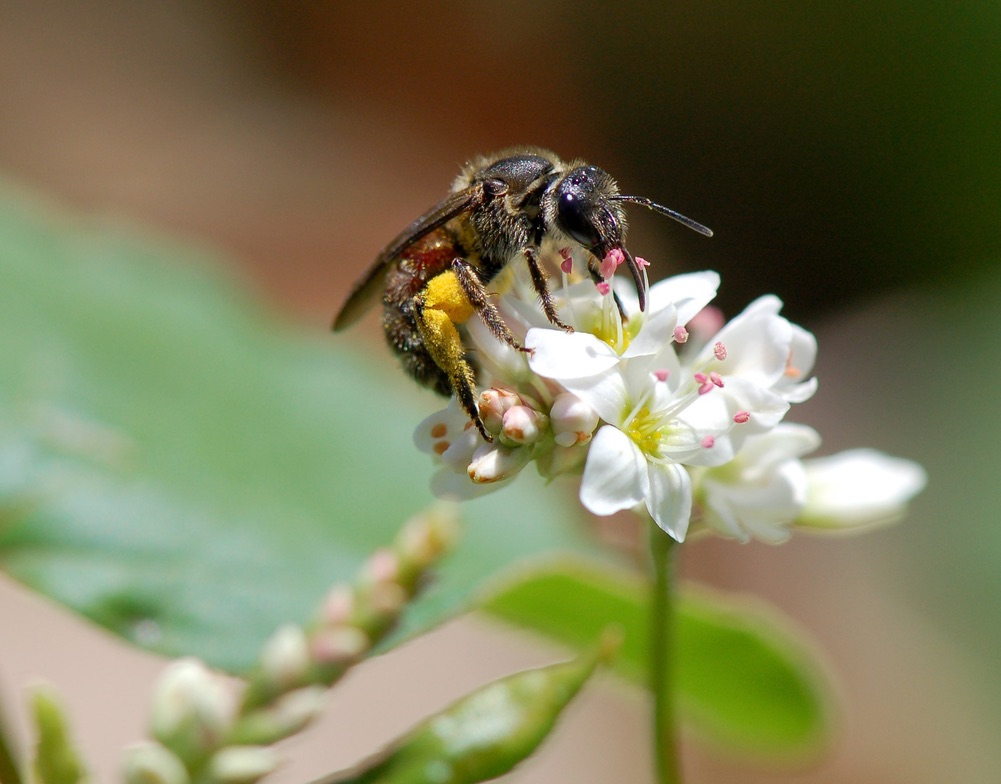
A Lasioglossum (Parasphecodes) native bee (Photo credit: Megan Halcroft)
Why Planetary Health Matters for Australia
Australia faces unique challenges. As the driest inhabited continent, Australia is particularly vulnerable to climate change impacts. Droughts, heatwaves, bushfires, floods and other extreme weather events such as cyclones have impacted the country for millennia but are occurring more frequently due to the changing climate.
The Great Barrier Reef, a world heritage site and crucial marine ecosystem, faces existential threats from warming oceans. Aquatic and land-based ecosystems are threatened by agriculture and aquaculture, deforestation and urban development. Biodiversity is declining; over 2000 species are listed as threatened and Australia has the fastest rate of mammal extinction in the world. Meanwhile, Australia’s agricultural systems face increasing drought frequency, threatening food security and rural livelihoods.
For Indigenous communities, who have sustainably managed Australia’s landscapes for over 65,000 years, planetary health disruptions represent not only physical health threats but also cultural ones. Traditional knowledge and connection to Country are integral to Indigenous wellbeing – connections that environmental degradation directly threatens.

A green turtle on the Great Barrier Reef. Photo credit: Erin Simmons
Planetary Health in Action Globally
In 2015, the Rockefeller Foundation-Lancet Commission on Planetary Health released its landmark report: “Safeguarding human health in the Anthropocene epoch”. Since then, the Planetary Health field has expanded rapidly to address the challenges identified in this report, with new academic journals, degree programs, courses, research institutes, and initiatives emerging at local, national and international levels.
The Lancet also produces a dedicated Planetary Health journal that publishes peer-reviewed papers by leading thinkers in the field alongside literature reviews and commentary.
Globally, the field’s core coordinating body is the Planetary Health Alliance, which unites over 480 organisations across 80+ countries to drive the growth of this transdisciplinary field with a focus on practical solutions.
The One Health approach to thinking about healthcare is another example of planetary health in action. This framework links the health of people, animals, and the environment and has been taken up globally, including in Australia where the Australian Centre for Disease Control has followed this approach.
This growing movement validates and supports Blue Mountains City Council’s approach over the last 25 years. Its Blue Mountains Planetary Health Initiative and Planetary Health Centre are driving local action to strengthen community well-being and resilience, restore natural systems, and foster hope in the face of climate change and increasing natural disasters.
The local news site you’re reading this article on is a core part of the strategy behind this initiative, informing and empowering local communities to take local action for restoring planetary health. The focus on solutions providing real hope is critical in the face of so much negativity in mainstream media.
Another positive Australian initiative is the Climate And Health Alliance (CAHA), the peak body on climate and health, using evidence-based advocacy to engage policymakers, professionals and the media.
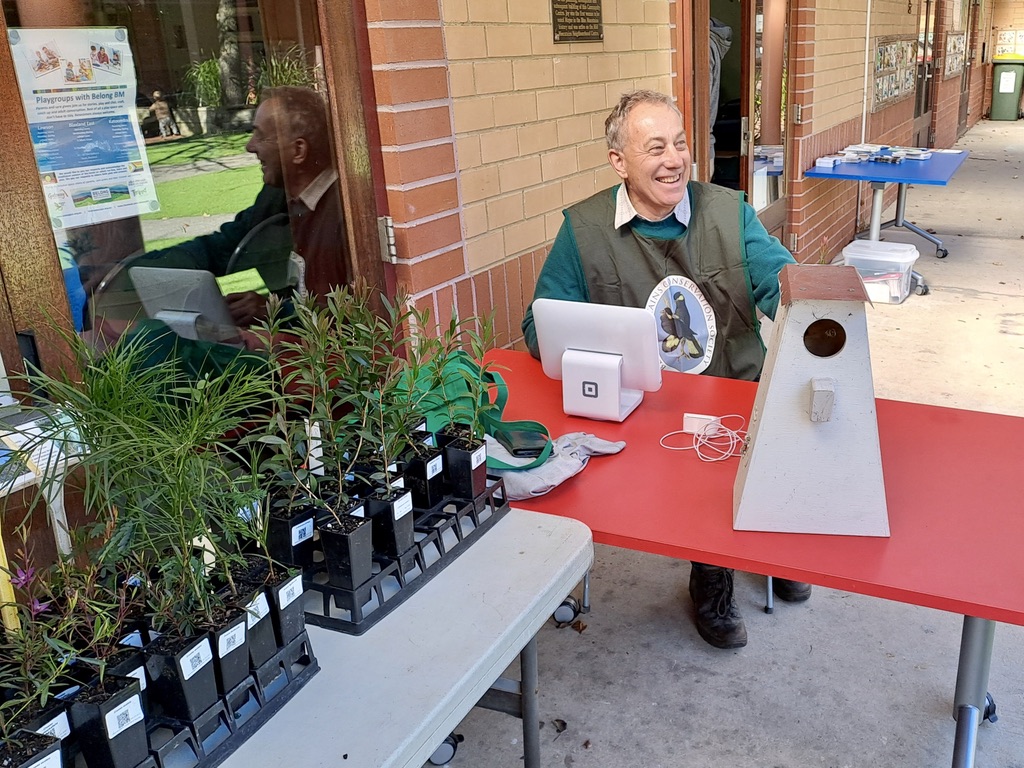
Andrew Solomon of the Blue Mountains Conservation Society selling native plants and nest boxes. (Photo credit: Belle Butler)
What Can You Do?
As the old saying goes, “think global, act local”. A great first step, if you haven’t already taken it, is to subscribe to the Blue Mountains Planetary Health newsletter, which gives you local news stories fortnightly, with actionable tips to help you make a difference locally, as well as invitations to workshops and events held at the Planetary Health Centre in Katoomba and beyond.
In and around your home the usual sustainable actions all add up, from switching to renewable energy to reducing, reusing and recycling wherever possible; growing your own food and eating locally-sourced food, planting natives, and avoiding pesticides and herbicides, especially near waterways.
In your community, consider volunteering with the many groups that work to improve our environment, from your local bushcare group to the many activities of the Blue Mountains Conservation Society. The What’s On page on this site also lists local events, workshops and groups that you can join or check out, covering everything from upcycling fashion to permaculture and building native animal nesting boxes.
Lastly, use the links below to share this story – planetary health is all about connectedness and the more people get involved, the more change we can effect.




